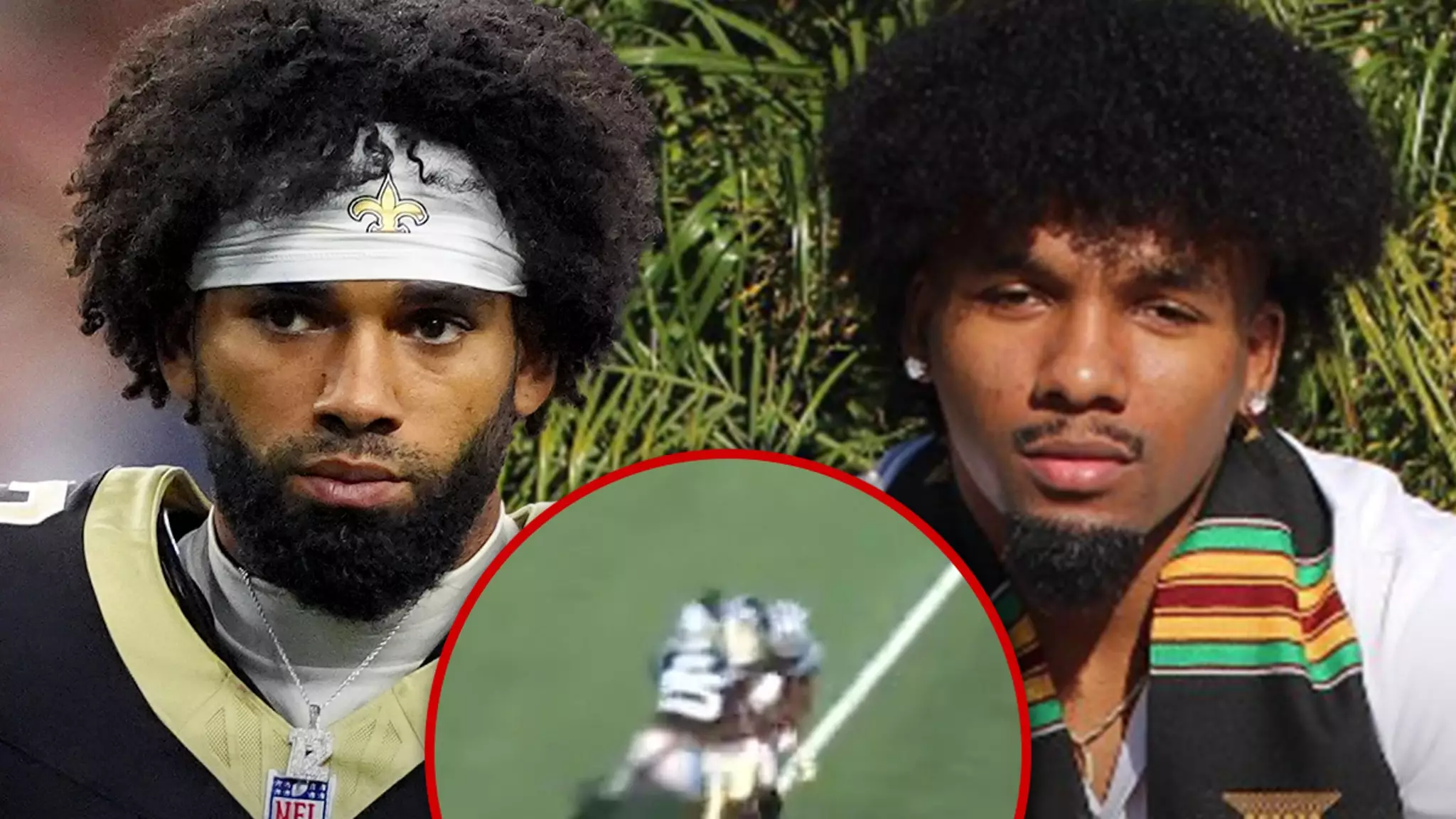The NFL is no stranger to injury controversies, but the recurrence of head injuries, particularly involving a rising star like Chris Olave, raises pressing concerns. During a tense match against the Panthers where the New Orleans Saints narrowly lost 23-22, Olave found himself on the receiving end of a hard hit that left fans and players alike worried about his health. This incident not only marks a significant injury but also highlights the broader issue of player safety in high-impact sports.
Olave, who was contending for a pass thrown by quarterback Derek Carr, faced a brutal tackle from safety Xavier Woods. The impact was severe enough to warrant a penalty for unnecessary roughness, yet the damage was done. Onlookers witnessed a harrowing moment as Olave lay motionless on the turf, necessitating his removal from the field on a stretcher. Although he was later cleared at the hospital and rejoined his teammates, the incident marked the second concussion of his season and the fourth in his professional career.
The situation has sparked conversation beyond the field, particularly regarding the responsibilities of players and the long-term consequences of repeated head injuries. Olave’s brother, Josh, voiced his apprehensions candidly, stating it’s “not worth it” for Chris to continue risking his health in New Orleans. His comments reflect a growing sentiment among concerned family members and fans who question the value of putting one’s body on the line for a sport that has increasingly come under scrutiny for its handling of concussions and other injuries.
Moreover, former Saints player Michael Thomas expressed frustration regarding the quarterback’s passing decisions during the game. Thomas emphasized the precariousness of the situation and criticized Carr’s play, suggesting that such decisions jeopardize the players’ safety. His comments reflect a broader discourse about quarterback accountability and the collective responsibility toward player safety in such high-pressure environments.
The NFL has made strides in addressing player safety, yet incidents like Olave’s still prompt critical questions. What measures are truly effective in protecting players from the long-term ramifications of concussions? The concern is not merely about one player but about the league’s culture that often prioritizes winning over well-being. As fans and stakeholders alike rally around players like Olave, it becomes crucial to evaluate the protocols in place to protect athletes from potentially life-altering injuries.
As the league moves deeper into the season, the spotlight will inevitably remain on Olave. While positive updates from the player assure fans of his immediate well-being, it’s essential to take a step back and consider the potential long-term impact of such injuries. The question that looms is not just about this player’s future, but about the future of the sport itself. As the narratives surrounding player health evolve, it’s clear that dialogue on safety measures must become a priority, ensuring the game protects those who entertain us.

